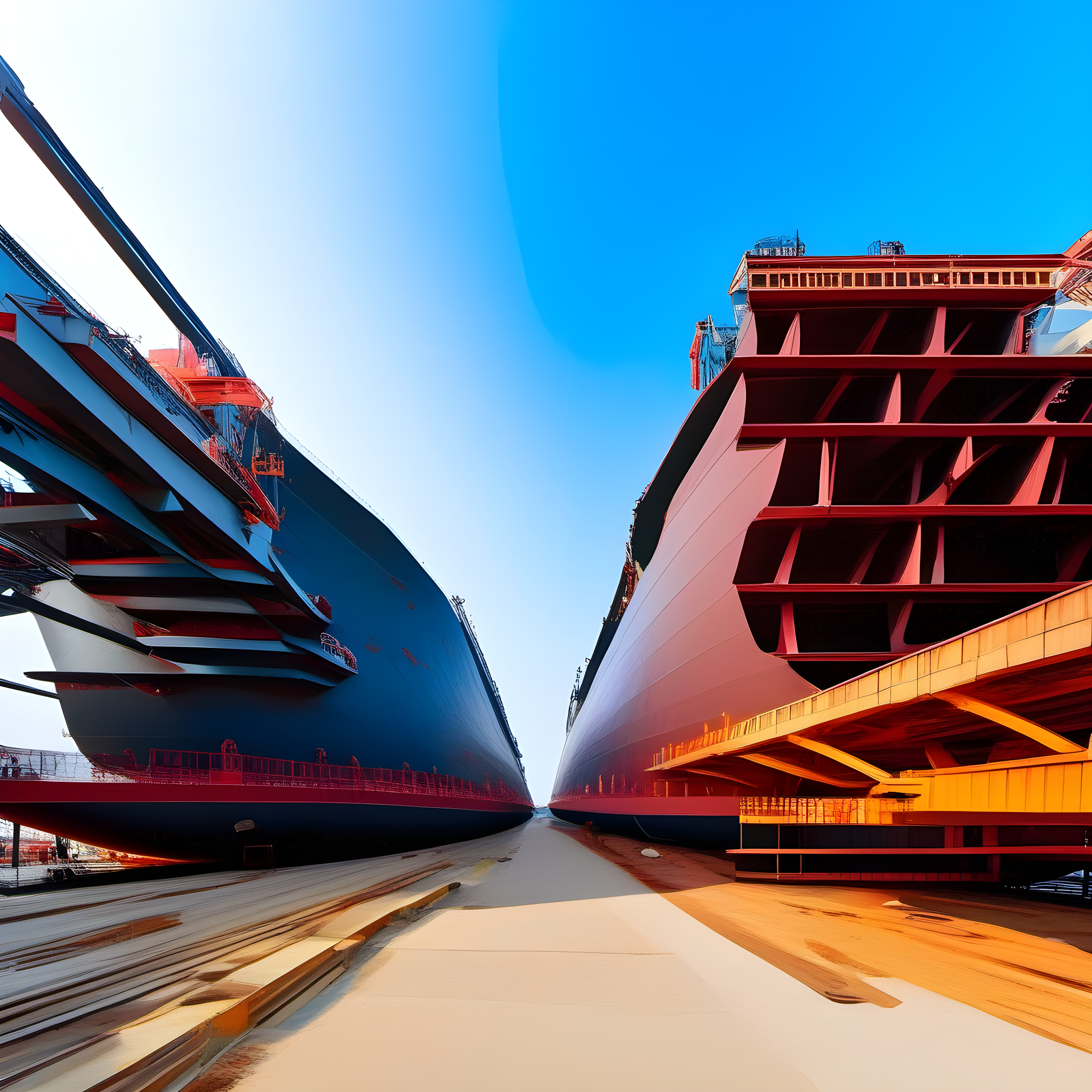What Materials Are Used in Shipbuilding and Why?
Ships are complex machines that must be able to withstand the harsh conditions of the open sea. As a result, the materials used in shipbuilding must be extremely strong, durable, and corrosion-resistant.
The most common material used in shipbuilding is steel. Steel is strong, relatively inexpensive, and easy to work with. It is also widely available, which makes it a good choice for shipbuilders around the world.
Another popular material used in shipbuilding is aluminum. Aluminum is lighter than steel, but it is also more expensive. Aluminum is often used for superstructures, deckhouses, and other weight-sensitive applications.
In recent years, other materials, such as fiberglass reinforced plastic (GFRP) and carbon fiber reinforced plastic (CFRP), have also become increasingly popular in shipbuilding. These materials are lightweight and strong, but they are also more expensive than steel.
Steel
Steel is the most widely used material in shipbuilding, accounting for over 90% of the weight of most ships. Steel is strong, durable, and relatively inexpensive. It is also easy to weld and fabricate, which makes it ideal for building large and complex structures.
The most common type of steel used in shipbuilding is mild steel. Mild steel is relatively low in carbon content, which makes it ductile and easy to work with. However, mild steel is not as strong as other types of steel, such as high-tensile steel.
High-tensile steel is used for applications where strength is critical, such as the hull of a ship. High-tensile steel is stronger than mild steel, but it is also more difficult to weld and fabricate.
Aluminum
Aluminum is a lightweight and corrosion-resistant metal that is often used in shipbuilding for superstructures, deckhouses, and other weight-sensitive applications. Aluminum is also used for the hulls of some smaller vessels, such as powerboats and yachts.
Aluminum is stronger than steel, but it is also more expensive. Aluminum is also more difficult to weld than steel, but it can be bonded using adhesives or rivets.
Fiberglass Reinforced Plastic (GFRP)
GFRP is a composite material made of glass fibers embedded in a plastic resin. GFRP is lightweight, strong, and corrosion-resistant, making it a good choice for a variety of shipbuilding applications, including hulls, superstructures, and decks.
GFRP is relatively expensive, but it offers a number of advantages over traditional shipbuilding materials, such as steel and aluminum. GFRP is also relatively easy torepair, which can save time and money in the long run.
Carbon Fiber Reinforced Plastic (CFRP)
CFRP is a composite material made of carbon fibers embedded in a plastic resin. CFRP is even stronger and lighter than GFRP, making it a good choice for high-performance vessels such as racing yachts and warships.
CFRP is the most expensive shipbuilding material, but it offers a number of advantages over other materials, such as reduced weight and increased strength. CFRP is also corrosion-resistant and easy to repair.
Other Materials
A variety of other materials are also used in shipbuilding for specialized applications. For example, copper is used for piping and wiring, while lead is used for ballast. Zinc is used to protect steel from corrosion, and rubber is used for gaskets and seals.
Why Are These Materials Used?
The materials used in shipbuilding are selected based on a variety of factors, including:
- Strength: Ships must be able to withstand the harsh conditions of the open sea, so the materials used in shipbuilding must be very strong.
- Durability: Ships have a long lifespan, so the materials used in shipbuilding must be durable and able to withstand the elements.
- Corrosion resistance: Ships are constantly exposed to saltwater, so the materials used in shipbuilding must be corrosion-resistant.
- Weight: Ships are large and complex machines, so it is important to use lightweight materials to reduce the overall weight of the ship.
- Cost: The cost of shipbuilding materials is a major consideration, so shipbuilders must select materials that are affordable and offer good value for money.
Conclusion
The materials used in shipbuilding are selected based on a variety of factors, including strength, durability, corrosion resistance, weight, and cost. The most common materials used in shipbuilding are steel, aluminum, and GFRP. Other materials, such as CFRP, copper, lead, zinc, and rubber, are also used for specialized applications.
Summary of Most Important Things to Remember:
- The materials used in shipbuilding must be strong, durable, and corrosion-resistant.
- Steel is the most common material used in shipbuilding, accounting for over 90% of the weight of most ships.
- Aluminum is a lightweight and corrosion
Sameera Building Construction
Your One-Stop Shop for Building Dreams (Literally!)
We've got bricks, we've got beams, and we've got a bunch of hard hats.
Because when it comes to construction, we don't just build buildings; we build stories.
Visit Us Now and Join the Fun!Source link


